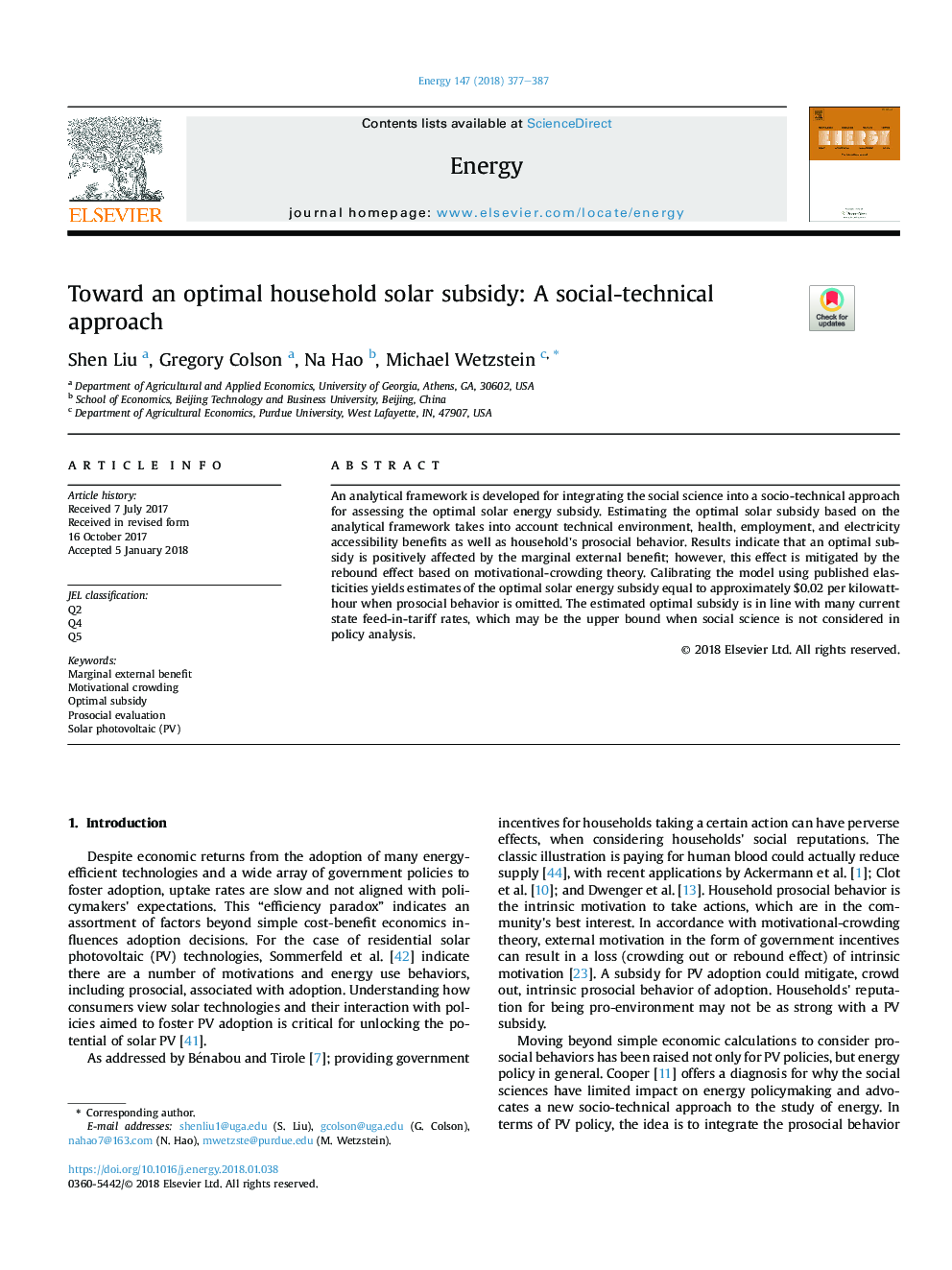| Article ID | Journal | Published Year | Pages | File Type |
|---|---|---|---|---|
| 8072145 | Energy | 2018 | 11 Pages |
Abstract
An analytical framework is developed for integrating the social science into a socio-technical approach for assessing the optimal solar energy subsidy. Estimating the optimal solar subsidy based on the analytical framework takes into account technical environment, health, employment, and electricity accessibility benefits as well as household's prosocial behavior. Results indicate that an optimal subsidy is positively affected by the marginal external benefit; however, this effect is mitigated by the rebound effect based on motivational-crowding theory. Calibrating the model using published elasticities yields estimates of the optimal solar energy subsidy equal to approximately $0.02 per kilowatt-hour when prosocial behavior is omitted. The estimated optimal subsidy is in line with many current state feed-in-tariff rates, which may be the upper bound when social science is not considered in policy analysis.
Keywords
Related Topics
Physical Sciences and Engineering
Energy
Energy (General)
Authors
Shen Liu, Gregory Colson, Na Hao, Michael Wetzstein,
